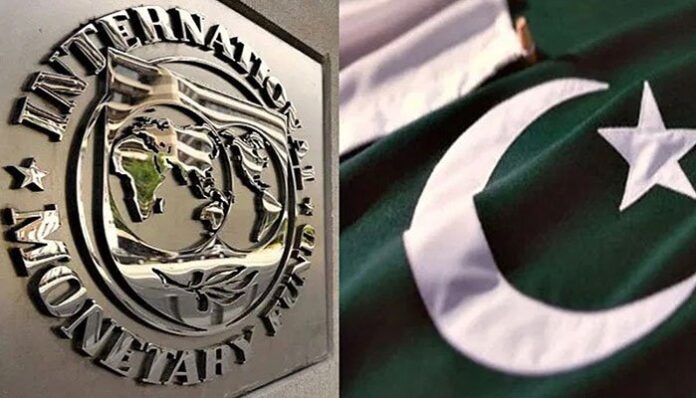In what could prove to either be a win it from behind story or go down as the last throes of a sinking ship, the government has stepped on the gas as it races to try and have crucial funds released from the International Monetary Fund (IMF).
In the absence of President Arif Alvi, the amended Finance Bill 2023-24 was sent to Senate Chairman Sadiq Sanjrani, who is acting President until Mr Alvi returns to action. The bill was hurriedly signed through after it had been bulldozed through parliament by lawmakers looking at the clock hoping to get on their Hajj flights.
And that wasn’t the only significant moment in the day. The State Bank of Pakistan (SBP) convened an emergency meeting of its Monetary Policy Committee which raised the policy rate in the country by 100 basis points (bps) to 22% effective June 27, 2023. The decision comes only two weeks after the last MPC meeting where the interest rate was kept unchanged at 21%.
All of this is making it seem like Pakistan might manage to pull through and sign a Staff Level Agreement with the fund. The question, however, is why it has taken so long. The government knew the conditions that the fund had and has finally now made a slate of moves to comply with them. This sudden efficiency and willingness is surprising. If it comes because of the meetings Prime Minister Shehbaz Sharif held directly with the IMF’s top brass on the sidelines of international conferences then it might mean his finance minister failed to effectively communicate these conditions to his boss.
As of now, the IMF is having its conditions met. The government has updated all the fiscal numbers on the instructions of the fund. The total expenditure for 2023-24 is increased from Rs 14.460tr to Rs14.480 tr and pension estimate from Rs761 billion to Rs801bn.
Similarly, the subsidy estimate would now be Rs 1.064 tr and grants would be Rs 1.405 tr, adding as a result of all these measures, the overall budget deficit would come down, with a cushion of Rs300bn [Rs215 billion taxes and Rs 85 billion reduction in running expenditures].
The new Federal Board of Revenue target also increased to Rs 9.415 tillion from Rs 9.200 tillion on the instructions of IMF. The new income tax rates for the salaried class has also been increased where taxable income exceeds Rs 2,400,000 but does not exceed Rs 3,600,000, the rate of tax would be Rs 165,000 plus 22.5% of the amount exceeding Rs 2,400,000.
Where taxable income exceeds Rs 3,600,000 but does not exceed Rs. 6,000,000, the rate of tax would be Rs 405,000 plus 27.5% of the amount exceeding Rs 3,600,000. Where taxable income exceeds Rs 6,000,000, the rate of tax would be Rs 1,095,000 plus 35 percent of the amount exceeding Rs 6,000,000.
According to the amended finance bill, the government at the eleventh hour also increased sales tax (further tax) on unregistered persons to 4 percent from 3 percent to discourage supplies to unregistered retailers and distributors.
Meanwhile, there will be a 5 percent sales tax on Fertilizer, as per the finance bill 2023. According to the Finance bill, the government has also enhanced advance tax on registration from all sorts of vehicles.
The government is trying hard to get $1.1 billion under the ninth review of the IMF program. However, the programme is set to expire in three days on this Friday. Only time will tell whether it will be a somber or celebratory Eid weekend.
























